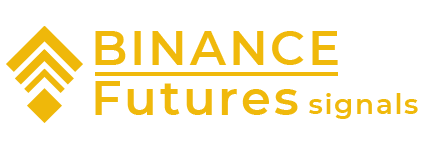I. Introduction: The Importance of Choosing the Right Crypto Wallet
II. Factors to Consider When Choosing a Crypto Wallet
III. Types of Crypto Wallets: Pros and Cons
IV. Tips for Selecting the Best Crypto Wallet

The Importance of Choosing the Right Crypto Wallet
Welcome to the exciting world of cryptocurrencies! Whether you’re a seasoned investor or just starting out, one thing is clear: choosing the right crypto wallet is crucial. Why, you ask? Well, let me break it down for you.
A crypto wallet is essentially a digital wallet that allows you to securely store, send, and receive your cryptocurrencies. It’s like your own personal bank vault, but for digital assets. Just as you wouldn’t leave your hard-earned cash lying around, you shouldn’t leave your precious cryptocurrencies vulnerable to theft or loss.
So, what are the factors you should consider when choosing a crypto wallet? Let’s dive in!
Factors to Consider When Choosing a Crypto Wallet
- Security: The first and most important factor to consider is security. You want a wallet that employs robust security measures to protect your digital assets. Look for wallets that offer features like two-factor authentication, encryption, and multi-signature functionality. Remember, in the world of cryptocurrencies, you are your own bank, so security should be your top priority.
- User-Friendliness: While security is paramount, you also want a wallet that is user-friendly. After all, you don’t want to be pulling your hair out every time you need to make a transaction. Look for wallets with intuitive interfaces and easy-to-understand features. Trust me, you’ll thank me later when you’re effortlessly managing your crypto portfolio.
- Compatibility: Another factor to consider is compatibility. You want a wallet that supports the cryptocurrencies you own or plan to own. Some wallets are designed specifically for certain cryptocurrencies, while others offer multi-currency support. Do your research and choose accordingly.
- Backup and Recovery: Cryptocurrencies are decentralized, which means there’s no central authority to help you recover your funds if something goes wrong. That’s why it’s crucial to choose a wallet that offers backup and recovery options. Look for wallets that provide seed phrases or private keys that you can use to restore your wallet in case of loss or theft.
- Community Support: Last but not least, consider the community support around the wallet. Look for wallets that have an active and engaged community of users. This way, you can seek help, ask questions, and stay updated on the latest developments in the crypto world. Trust me, the crypto community is a treasure trove of knowledge!
Now that you know what factors to consider, let’s talk about the different types of crypto wallets and their pros and cons. Stay tuned for the next section!
For more in-depth information on choosing the right crypto wallet, you can check out CoinDesk. They have a plethora of articles and guides to help you navigate the crypto wallet landscape.
Factors to Consider When Choosing a Crypto Wallet
So, you’ve decided to dive into the exciting world of cryptocurrencies. Good for you! But before you start trading or investing, there’s one crucial decision you need to make: choosing the right crypto wallet. Trust me, this decision can make or break your crypto journey, so pay attention!
When it comes to selecting a crypto wallet, there are several factors you should consider. Let’s break them down:
- Security: This should be your number one priority. After all, we’re talking about digital assets here. Look for a wallet that offers top-notch security features, such as two-factor authentication, encryption, and offline storage. Don’t settle for anything less than Fort Knox-level security.
- User-Friendliness: Unless you’re a tech genius, you’ll want a wallet that is user-friendly and easy to navigate. Trust me, you don’t want to spend hours trying to figure out how to send or receive your hard-earned crypto. Look for a wallet with a clean and intuitive interface that even your grandma could use.
- Compatibility: Make sure the wallet you choose supports the cryptocurrencies you plan to hold. There’s no point in getting a wallet that only supports Bitcoin if you’re planning to diversify your portfolio with Ethereum, Litecoin, or other altcoins. Check the wallet’s website or app store description to see which cryptocurrencies are supported.
- Backup and Recovery: Imagine losing access to your wallet and all your precious crypto because you forgot your password or your device got stolen. Yikes! Look for a wallet that offers a robust backup and recovery system. This could include features like seed phrases, backup codes, or the ability to restore your wallet on a new device.
- Development Team: It’s always a good idea to do some research on the wallet’s development team. Are they experienced? Do they have a good reputation in the crypto community? Remember, you’re trusting these folks with your digital fortune, so you want to make sure they know what they’re doing.
Now that you know the factors to consider, let’s move on to the next step: understanding the different types of crypto wallets and their pros and cons. Stay tuned!
III. Types of Crypto Wallets: Pros and Cons
So, you’ve decided to dive into the world of cryptocurrencies. Good for you! But before you start buying up all the Bitcoin and Ethereum you can get your hands on, you need a safe and secure place to store your digital assets. That’s where crypto wallets come in.
There are several types of crypto wallets available, each with its own set of pros and cons. Let’s take a closer look:
- Hardware Wallets:
- Software Wallets:
- Web Wallets:
- Paper Wallets:
Think of hardware wallets as the Fort Knox of crypto storage. These physical devices are specifically designed to keep your private keys offline and away from prying eyes. They offer the highest level of security and are virtually immune to hacking attempts. Plus, they usually come with a nifty little display that allows you to verify and confirm transactions.
Pros: Top-notch security, offline storage, easy transaction verification.
Cons: Can be pricey, not as convenient for frequent trading.
Software wallets, also known as digital wallets, are applications or programs that you install on your computer or smartphone. They offer a convenient way to access and manage your crypto assets, but they come with a trade-off in terms of security. Since they are connected to the internet, they are more vulnerable to hacking attempts.
Pros: Easy to use, convenient access to your crypto, often free.
Cons: Less secure than hardware wallets, potential vulnerability to hacking.
Web wallets are online platforms that allow you to store and manage your cryptocurrencies through a web browser. They are usually provided by cryptocurrency exchanges or third-party service providers. While web wallets offer easy accessibility, they also come with inherent risks. Since your private keys are stored on a remote server, you are essentially trusting someone else to keep your assets safe.
Pros: Convenient access, often integrated with exchanges.
Cons: Reliance on third-party security, potential vulnerability to hacking.
If you’re a fan of old-school methods, paper wallets might be right up your alley. A paper wallet is simply a physical printout or handwritten note containing your public and private keys. It’s offline and, if stored correctly, can be a secure way to store your crypto. However, it’s crucial to keep your paper wallet safe from physical damage, loss, or theft.
Pros: Offline storage, low cost, no risk of hacking.
Cons: Vulnerable to physical damage or loss, not as user-friendly.
Now that you have a better understanding of the different types of crypto wallets, it’s time to choose the one that suits your needs and preferences. Remember, security should always be your top priority, so don’t skimp on investing in a reliable wallet.
Whether you opt for the impenetrable fortress of a hardware wallet, the convenience of a software wallet, the accessibility of a web wallet, or the simplicity of a paper wallet, make sure to do your research and choose a reputable provider. And always remember to keep your private keys safe and secure.
Happy crypto storing!
IV. Tips for Selecting the Best Crypto Wallet
So, you’ve decided to dive into the world of cryptocurrencies. Congratulations! Now, one of the most crucial decisions you’ll have to make is choosing the right crypto wallet. With so many options out there, it can be overwhelming. But fear not, dear reader, for I am here to guide you through this process with some expert tips.
1. Security First
When it comes to storing your precious digital assets, security should be your top priority. Look for a wallet that offers robust security features, such as two-factor authentication, encryption, and multi-signature functionality. Remember, you want to keep those crypto coins safe from the clutches of hackers and scammers.
2. User-Friendly Interface
While security is paramount, you also want a wallet that is easy to use. After all, you don’t want to spend hours figuring out how to send or receive funds. Look for a wallet with an intuitive and user-friendly interface that makes managing your cryptocurrencies a breeze.
3. Compatibility and Accessibility
Before settling on a crypto wallet, consider the platforms and devices you’ll be using. Ensure that the wallet you choose is compatible with your operating system, whether it’s iOS, Android, or desktop. Additionally, look for wallets that offer mobile apps for convenient access on the go.
4. Supported Cryptocurrencies
Not all wallets support the same range of cryptocurrencies. If you have a specific coin in mind, make sure the wallet you choose supports it. Additionally, consider future-proofing your investment by opting for a wallet that supports a wide range of cryptocurrencies, giving you the flexibility to diversify your portfolio in the future.
5. Reputation and Reviews
When it comes to choosing a crypto wallet, it’s always a good idea to do your research. Look for wallets with a solid reputation in the crypto community and check out user reviews to get a sense of their experiences. Remember, you want a wallet that has stood the test of time and has a loyal user base.
6. Backup and Recovery Options
Accidents happen, devices get lost, and wallets can become inaccessible. That’s why it’s crucial to choose a wallet that offers backup and recovery options. Look for wallets that provide seed phrases or private key backups, allowing you to restore your wallet and access your funds even if something goes wrong.
7. Customer Support
Finally, don’t overlook the importance of good customer support. If you ever encounter any issues or have questions, you want a wallet provider that is responsive and helpful. Look for wallets that offer multiple channels of support, such as email, live chat, or a dedicated support forum.
Now that you’re armed with these tips, go forth and choose your crypto wallet wisely. Remember, your wallet is the gatekeeper to your digital fortune, so take your time and make an informed decision. And if you’re looking for some top-notch crypto and forex signal providers, be sure to check out Sublime Traders. They’ve got the expertise and insights to help you make the most of your investments.

